新人教版高中英语必修3Unit 3 Diverse Cultures-Discovering Useful Structure教学设计
-
- 页数:5页
- 字数:约 6710 字
- 大小:72.90KB
- 格式:.docx
- 版本:Office2016及以上版本
- 作者:雨森设计
Unit 3 DiverseCultures-Discovering Useful Structure教学设计
The theme of thesection is “Understand the use of ellipsis in English”.
Ellipsis is verycommon, which is just for avoiding repetition, emphasizing new words orinformation and tight link the grammars of the context. Ellipsis can makelanguage more concise, the meaning clearer and the structure closer. Generallyspeaking, if ellipsis doesn’t destroy the structure or bring about ambiguity,the sentences should be omitted as much as possible. By learning differentkinds of ellipsis, students can experience and understand the effect ofellipsis.

1. Learn the definition, structure, functionsand features of ellipsis.
2. Learn to summarize some common ellipsis
3. Learn to use ellipsis in oral and writing English.1. Learn the definition, structure, functionsand features of ellipsis.
2. Learn to summarize some commonellipsis.
3. Learn to use ellipsis in oral and writingEnglish.
Step 1 Definition of Ellipsis
Read the followingsentences and find the words that have been omitted to avoid repetition.1.A: Oh, I just love nachos! Mexican cornchips covered in cheese!
B: Me, too.
A: Oh, I just lovenachos! They are Mexican corn chips covered in cheese!(省略主语和谓语)
B: Me(I lovenachos), too.(省略主语、谓语和宾语)
2.A: So it’s the foodof many different cultures, all in one dish?
B: Exactly.
A: So it’s the food of many differentcultures, and they are all in one dish?(省略主语和谓语)
B: Exactly, it’sthe food of many different cultures, and they are all in one dish.(省略句子)
3.A real mix of cultures here!
There is a real mix ofcultures here!(省略主语和谓语)
4.Can’t wait !ICan’t wait to go there!(省略主语)(省略宾语)
Summary:省略(Ellipsis)就是为了使语言简洁或避免重复, 省略句子中的一个或几个句子成分。可分为句子成分的省略和词的省略。
Step 2 Functions of Ellipsis
Rewrite thesentences by taking out the unnecessary parts.1.You mean you areplanning a trip across the Atlantic for a holiday? It sounds like a good idea.
2.He tried to solvehis financial problems, but he couldn’t solve the problems.
3.If it isnecessary, I’ll finish my report on American poetry as soon as it is possible.
4.Are you going todress like that ? Wearing a dress might be better than wearing jeans and boots.
5.Some wildmushrooms are poisonous and some are not poisonous.
6.I really like thatpaper folding book, and my son likes that paper folding book, too.
Answers:
1. You mean youare planning a trip across the Atlantic for a holiday? ( It sounds like a)good idea.(简单句)
2. He tried to solve his financial problems, but (he) couldn’t (solvethe problems). (并列句)
3. If (it is) necessary, I’ll finish my report on American poetry assoon as (it is) possible.(复合句)
4. Are you going to dress like that ? (Wearing) a dress might be betterthan wearing jeans and boots.
(复合句)
5. Some wild mushrooms are poisonous and some are not (poisonous).(并列句)
6. I really like that paper folding book, and my son (likes that paperfolding book), too.(并列句)Summary:
简单句中省略的用法:
1. 在对话、交际中回答他人的问题时,根据问题的类型和性质,只作简短的回答。2. 在对话、交际中谈论事物时,接着人家的话,发表自己的观点、看法,常省略相同的部分。
3. 在对话、交际中表达心里感受时,主语、系动词常被省略。
4. 在祈使句中的主语常被省略。
5. 在感叹句中为了表达出强烈的感情,常省略主语、系动词或谓语动词等。E.g.
1. —Who is talking with our teacher?—Ourheadmaster.
2. —Maths is very difficult.
—Butvery important and useful.
3. —What do you think about this film?—Verydisappointing.
4. Go and open the window.
5. What a good girl!并列句中省略的用法:
在并列句中,如果所连接的两个句子具有相同的句子成分,在不影响句意表达的情况下,通常可以省略后一成分中的相同的词语或结构。
1. Wise men have their mouth in their heart, and fools their heart in theirmouth.
(and fools后省略了have)
2.She is not an emotional type and so cannot bring herself to tell him I lovehim.
(and fools后省略了she)复合句中省略的用法:
1.主句中的省略常见于句首或回答问题时, 只用从句。
—Why didn’t you come to class yesterday?
—( I didn’t come to class yesterday)Because I was ill.
2.宾语从句中的省略:在宾语从句中常省略连词that, 但当及物动词之后跟两个或两个以上的宾语从句时, 只有第一个连词that可以省略。
I know(that)she isa teacher and that she is an excellent writer.
3.状语从句中的省略:当状语从句中的主语和主句的主语一致或从句主语是it, 并且从句谓语中有be动词时, 常可以省略从句中的主语和be动词。此类状语从句中的省略有如下情况:
(1)在as, before, till,until, when, while等引导的时间状语从句中。
While(I was)walking along the street, Iheard my name called.
(2)在though, although等引导的让步状语从句中。
Though(they were)tired, they went onworking.
(3)在if, unless等引导的条件状语从句中。
You shouldn’t cometo his party unless(you are)invited.
(4)在as, as if, as though等引导的方式状语从句中。He did as(he was)told.
(5)在虚拟语气中, 常省掉if, 从句使用倒装句式。
Were I you(=If I were you), I should give that guy a good lesson.
4.定语从句中的省略
(1) 一般说来, 在限制性定语从句中, 作宾语的关系代词that, which, who, whom可以省略; 而在非限制性定语从句中作宾语的关系代词不可以省略。
The man (whom)yousaw yesterday fell ill.
The man, whom you saw yesterday, fell ill.
(2) 当先行词是way, 且引导词在定语从句中作方式状语时, 引导词可用in which或that, 也可以省略。
The way( inwhich/that )these comrades treat problems is wrong.
固定短语中的省略:not at all, what about, why not, if only,what if...
Step 4 Practice
Read theconversation. Find out which words have been left out.
Justin: Linlin,I’m going to Guizhou Province next month. I’m super excited! Anyrecommendations for places to visit?
Linlin: Wow, cool!Guizhou is a province with a lot of cultural diversity. Places to visit...well,definitely the Huangguoshu Waterfall first.
Justin: What’sspecial about the waterfall?
Linlin: Well, haveyou ever heard of the Chinese novel Journey to the West ?
Justin: Yes, Ihave. Why ?
Linlin: In theback of the waterfall, you will find a cave, which is the home of the MonkeyKing.
Justin: Really?Cool! I’ll definitely check it out.
您可能喜欢的文档
查看更多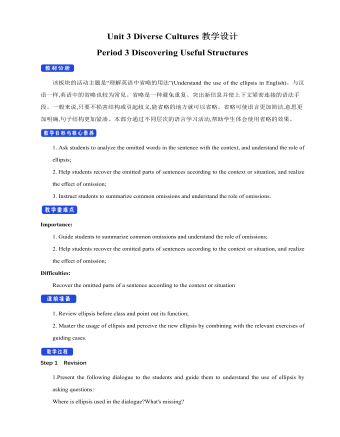
新人教版高中英语必修3Unit 3 Diverse Cultures教学设计三
- 页数:5页
- |大小:83.01KB
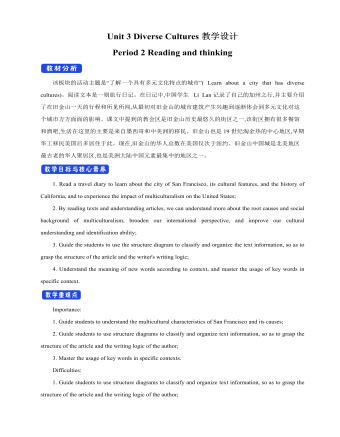
新人教版高中英语必修3Unit 3 Diverse Cultures教学设计二
- 页数:5页
- |大小:461.32KB
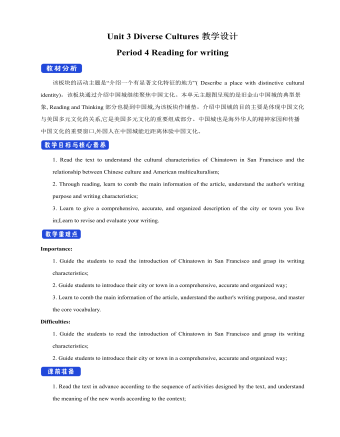
新人教版高中英语必修3Unit 3 Diverse Cultures教学设计四
- 页数:5页
- |大小:92.81KB
热门课件教案
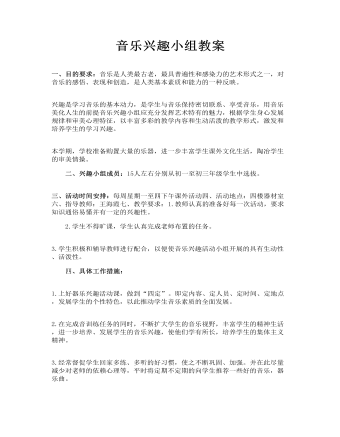
音乐兴趣小组教案
- 页数:5页
- |大小:89.58KB
- 课件教案
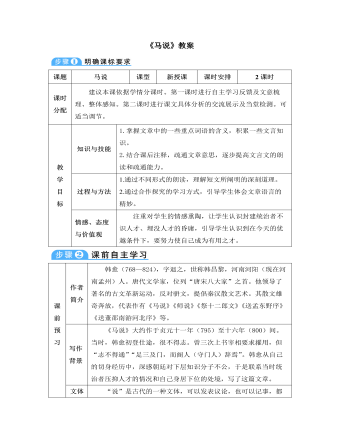
部编版语文八年级下册《马说》教案
- 页数:8页
- |大小:367.50KB
- 课件教案
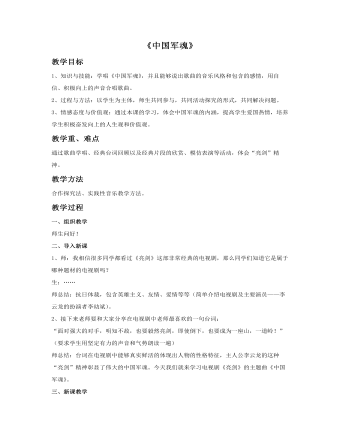
《中国军魂》教案
- 页数:2页
- |大小:33.00KB
- 课件教案
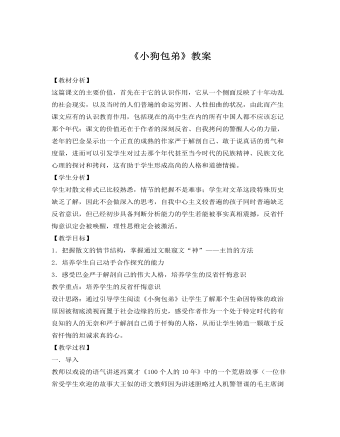
人教版高中语文《小狗包弟》教案
- 页数:8页
- |大小:29.21KB
- 课件教案

精选高中生期末评语
- 页数:42页
- |大小:7M
- 课件教案
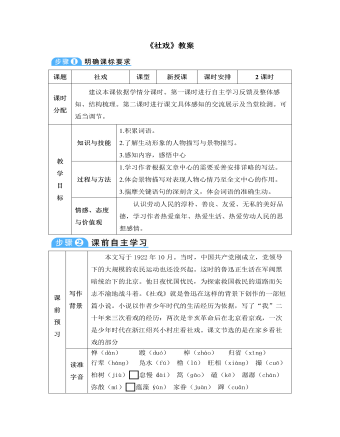
部编版语文八年级下册《社戏》教案
- 页数:8页
- |大小:340.00KB
- 课件教案
今日更新

精选高中生期末评语
- 页数:42页
- |大小:7M
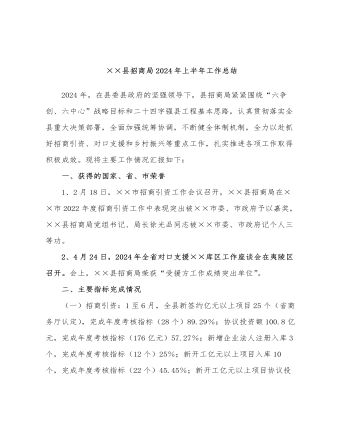
××县招商局2024年上半年工作总结
- 页数:12页
- |大小:142.54KB
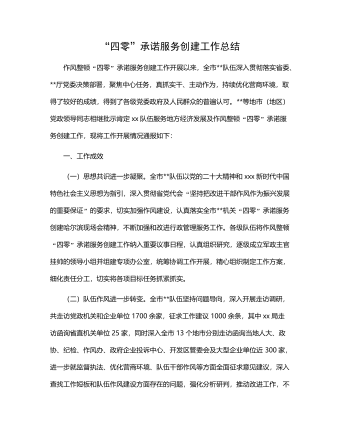
“四零”承诺服务创建工作总结
- 页数:5页
- |大小:39.83KB
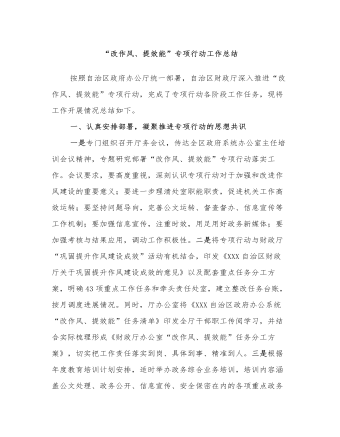
“改作风、提效能”专项行动工作总结
- 页数:6页
- |大小:139.05KB
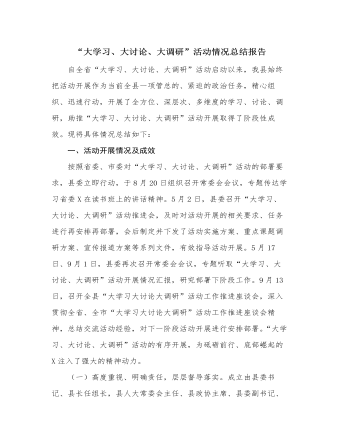
“大学习、大讨论、大调研”活动情况总结报告
- 页数:7页
- |大小:26.12KB
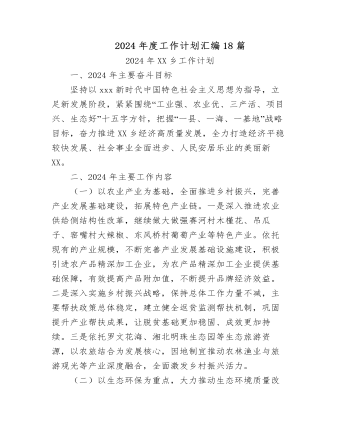
2024年度工作计划汇编(18篇)
- 页数:72页
- |大小:196.93KB









